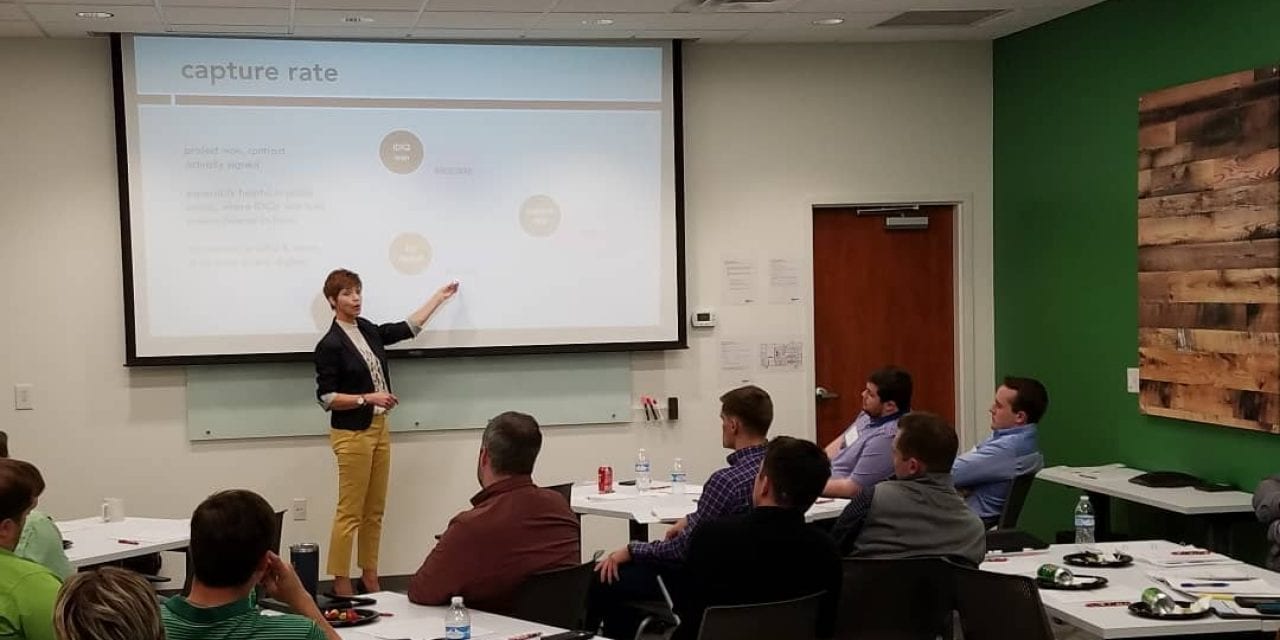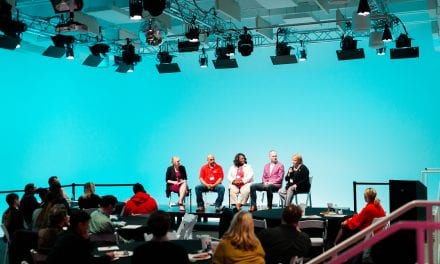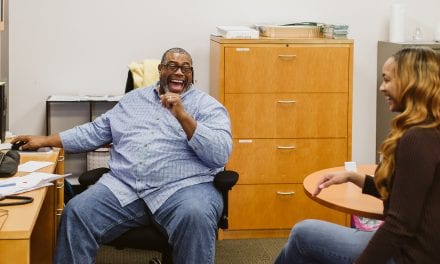The quote, “Everyone lives by selling something,” made famous by author Robert Louis Stevenson, is a core axiom of entrepreneurship. It is a truth seen every day, all over the world in physical or digital marketplaces. Even though making money is all about selling something, the needs needed to promote a marketing message might not come naturally to some entrepreneurs. After all, this is a skill set that may require its own team member or must be frequently outsourced in the form of a marketing company, social media manager, etc.
Clearly, there are those proprietors who don’t have the marketing knowledge needed to be successful. However, what if those same entrepreneurs can’t spare the expense of paying a marketing professional? What should they know if they’re to handle their enterprise’s marketing themselves?
Middle Tennessee native and marketing professional Donna Corlew is an entrepreneur herself. She operates C+ Connect, a company that both grows other companies as a business developer and markets services for architectural needs. She has a dual background in both business and marketing. She tells Launch Engine that there’s a world of difference between marketing goods and marketing services.

“Marketing for services I think is very different from marketing for products,” she says. “Just because you don’t have a widget to sell.”
The non-physical attributes of services might be tough for purchasers to visualize. Furthermore, they might be even tougher for potential customers to understand when things are a bit technical. Donna explains that the marketing for these things creates unclear goals from the purchaser’s perspective, which makes justifying the purchase harder than if they were buying physical units of something or could see immediate proof of the transaction. As some services are more technical than others, the value of these services might go over the heads of the audience.
How then does a person sell something that isn’t visible? Likewise, how can one sell a physical product (like something technical) that might not produce an immediate, tangible result for the business?
For Donna, the answer is about making a connection—not just to her or her business, but to the people, services, or products she’s trying to market. Her goal in marketing for the design and construction industry is to position those architects, engineers, contractors, and other related workers to where their portfolio of work resonates with someone looking to hire.
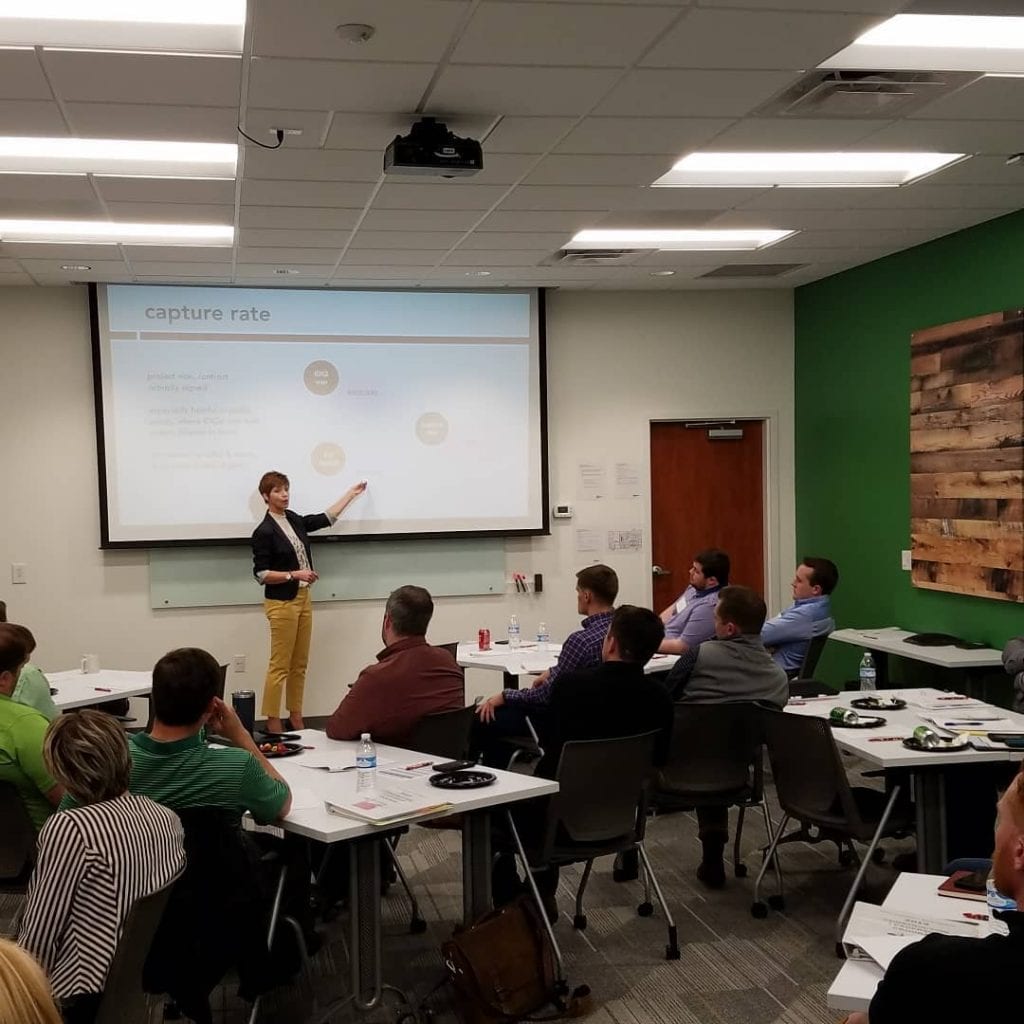
“It really is about relationships and that level of trust that a client, or an organization, or an owner, has to have in the firm and the people that are actually doing the work,” Donna says. “They may have a relationship with me. They make like me, they may love me. But if they don’t know the folks that are going to be day-in, day-out on their project—whether they’re designing it, investigating it, or building it—they’re not going to hire.”
There are general rules of marketing that might be in place from one situation to another. However, when it comes to marketing specific services, Donna says that there’s a chemistry that occurs in advance of a project. Even if both parties don’t know one another, this chemistry may take the place of a full and complete understanding of a product or service.
The images or text of a person’s portfolio of work are all about building an experience. These items are a kind of a handshake in advance that precedes a person in a talent pool. Without knowing the individual, the chemistry of the experience created by the portfolio may be all the person looking to hire has to go on when making a decision.
“That is as true for Starbucks selling coffee as it is for an architect selling design services,” Donna explains. She stresses that she hates to use the word “sell,” because the term doesn’t serve the humanity of the relationships between those being hired and those hiring. That humanity includes a shared understanding of what’s important to the client, and an ability to help the client see the value in the projected vision of the potential hire.

She asks, “How do you frame those stories and those experiences in a way that it resonates with the client [so] they have the impression of ‘They get me!’? You can say, ‘We’re going to design you a building.’ And yet, some people might argue that the building is the product; [as are] the drawings of the product. They are, but they’re not. That owner is purchasing talent and intellectual capital.”
Donna explains that purchasing a service should involve considering the people who are going to be delivering the services. Changing the discussion from “buying a service” versus “hiring a person with a certain expertise or skill set” means that there are different goals and checkpoints that are to be met within the procurement of a service. Donna’s philosophy is that when people see the person versus the thing, that vantage point changes their approach. She says that everything should be considered through a focal point of experience.
How do people interact not just with the proprietor, but with members of a team serving a business or the company’s digital presence? All these elements click together to make one final construct of how a business is perceived.
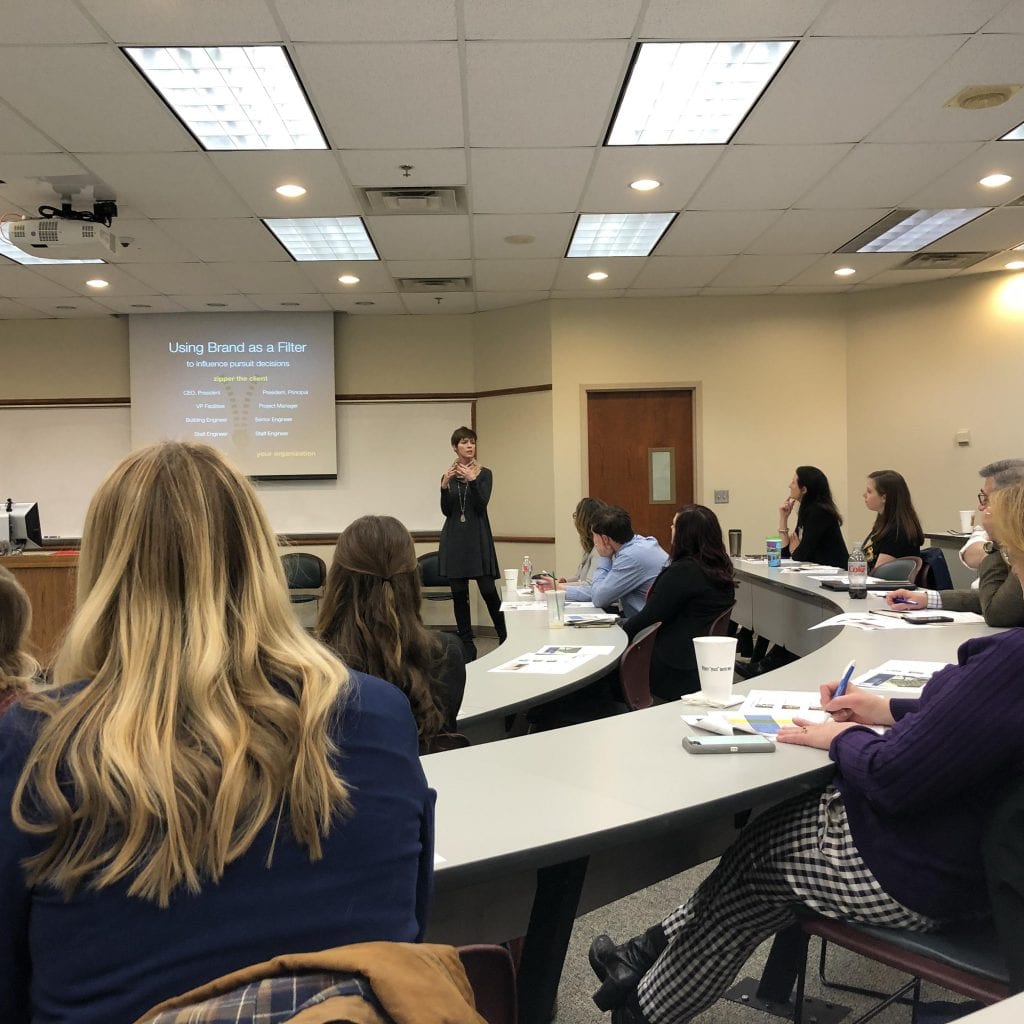
“Someone’s perception of you may be very different based on their experience than someone else’s,” Donna states. “And that’s a frustrating part. Because you can do all this great marketing that’s outbound to position the [company], whether it’s, you know, blog posts, social media, thought leadership, whatever the technology is….”
Donna goes on to explain that, for her services at C+ Connect, the delivery mechanism has to be a good fit for the marketing message. If someone has a bad experience, that bad experience is hard to get over. It can sully how the marketing message of an organization is received.
All based on her musings of how they interact with the end user, Donna tells Launch Engine that one of the business truisms she frequently cites to clients is “Relationships plus good work equals more work.”
She explains, “You can do good work, but if you don’t have the relationship, then you’re not going to get more work. But if you have the relationship, but you don’t do good work, guess what? You’re not going to get more work.”
For further information about C+ Connect, be sure to visit its website and social media.


